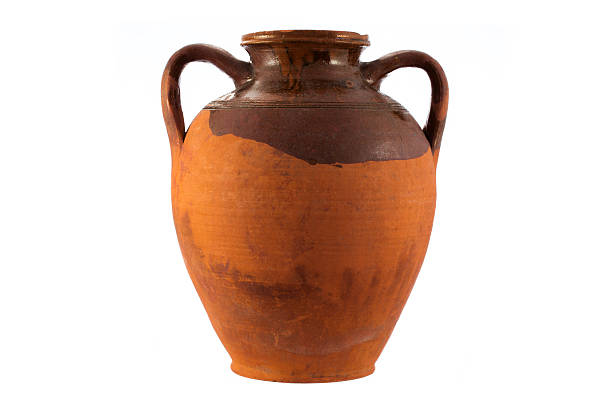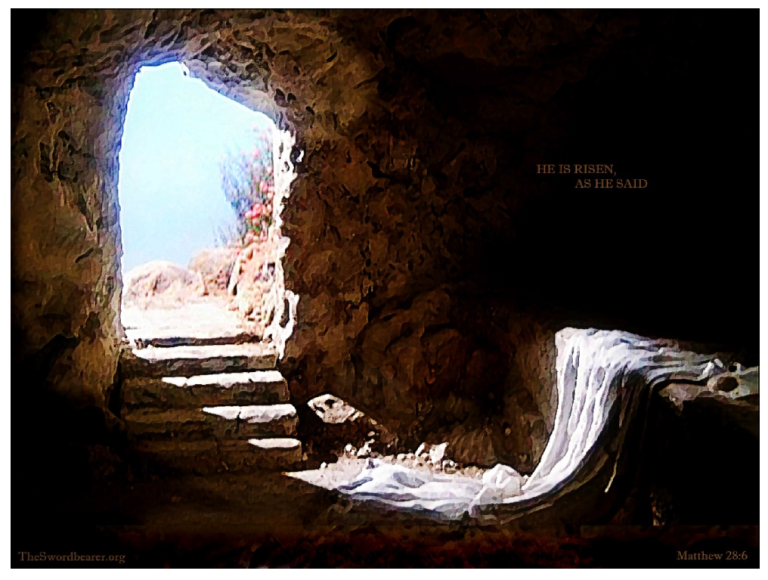2 Kings 4:1-7
Now there cried a certain woman of the wives of the sons of the prophets unto Elisha, saying, Thy servant my husband is dead; and thou knowest that thy servant did fear the Lord: and the creditor is come to take unto him my two sons to be bondmen.
And Elisha said unto her, What shall I do for thee? tell me, what hast thou in the house? And she said, Thine handmaid hath not any thing in the house, save a pot of oil.
Then he said, Go, borrow thee vessels abroad of all thy neighbours, even empty vessels; borrow not a few.
And when thou art come in, thou shalt shut the door upon thee and upon thy sons, and shalt pour out into all those vessels, and thou shalt set aside that which is full.
So she went from him, and shut the door upon her and upon her sons, who brought the vessels to her; and she poured out.
And it came to pass, when the vessels were full, that she said unto her son, Bring me yet a vessel. And he said unto her, There is not a vessel more. And the oil stayed.
Then she came and told the man of God. And he said, Go, sell the oil, and pay thy debt, and live thou and thy children of the rest.
- We can seek divine intervention through others. It is better to shut yourself in the closet and pray for divine intervention, but it is not a sin to ask other men of God to pray for you. Men of God are not equal in anointing. Therefore, if you face a challenge that has challenged your faith, seek help.
• There are servants of the Lord who are poor materially; the late husband, although a prophet, was heavily indebted.
• Take note of the question that Elisha asked her: ‘what has thou in the house?’ Sometimes, the solution to our problem is handy. It is not far off. All we need to do is to look around us.
• ‘Go borrow thee vessels from thy neighbours.’ The woman was so poor, there were no vessels in her house.
• The prophetic instruction was: ‘borrow vessels’. Do not borrow a few. Borrow a lot. ‘When thought art come in, shut the door, you and your sons and pour out.’
• From the little oil in her house, God caused a miracle to happen.
• Sometimes, God’s instructions may not make sense, but always remember that God’s ways are higher than our ways. So instead of rationalising, it is better to obey. For obedience is better than sacrifice and I would say: obedience is better than rationalising.
Jesus spoke to the servants at the feast: ‘fill up the pots with water’…and the water became wine.
• The miracle of supply would never have happened if the woman did not obey.
• When God does his miracle of supply, there is often more than enough. If it is not more than enough, it is not God, for God is able to do, exceeding abundantly what we ask or think.
Now have you ever considered that God is able to accomplish a lot more with the little that we bring?
“Your servant has nothing there at all,” she said, “except a small jar of olive oil.” [NIV]
Did you notice that the miracle was stopped by the woman, and not by God. She was the one that said: There is not a jar left.
When God is in the business of providing, let us not limit his provision by what we say.
This statement is true in the light of revelation from scriptures.
We will examine this today: My Little Pot of Oil.
Let’s, therefore, examine a few scriptures and draw lessons from them.
1) Moses
The man who stammers. Speech impediment was his deficiency.
Let’s look at Exodus 4:10-12.
Moses was destined for greatness. But when God called him, he began to give excuses.
‘And Moses said unto the Lord, O my Lord, I am not eloquent, neither heretofore, nor since thou hast spoken unto thy servant: but I am slow of speech, and of a slow tongue.
And the Lord said unto him, Who hath made man’s mouth? or who maketh the dumb, or deaf, or the seeing, or the blind? have not I the Lord?
Now therefore go, and I will be with thy mouth, and teach thee what thou shalt say.’
The Amplified Version puts it this way:
“Please, Lord, I am not a man of words (eloquent, fluent), neither before nor since You have spoken to Your servant; for I am slow of speech and tongue.” The LORD said to him, “Who has made man’s mouth?
He said to God: I am not eloquent of speech. I do not have the gift of oratory. I have a speech impairment. How could you be sending me? Why not send someone else? Don’t you even see my handicap?
Moses was saying to God: I have but little oil. I have very little to offer.
But God said to him: Aaron thy brother shall be thy prophet.
The same Moses who thought he was nothing, that same Moses, God said to him: I have made thee a god unto Pharaoh. Exodus 7:1
2) Gideon
In Judges 6:14-16, the Bible tells us about a man called Gideon. Gideon was ordained for greatness, but he did not know it.
‘And the Lord looked upon him, and said, Go in this thy might, and thou shalt save Israel from the hand of the Midianites: have not I sent thee?
And he said unto him, Oh my Lord, wherewith shall I save Israel? behold, my family is poor in Manasseh, and I am the least in my father’s house.
And the Lord said unto him, Surely I will be with thee, and thou shalt smite the Midianites as one man.’
The NIV puts it this way:
“Pardon me, my lord,” Gideon replied, “but how can I save Israel? My clan is the weakest in Manasseh, and I am the least in my family.”
When God called him, he said to God: I am a man of humble beginnings. My family is poor, and I am the least in my father’s house. How can I possibly save Israel? I do not have what it takes.
Gideon was telling God: I have but a little pot of oil.
But God had ordained him for greatness. When Gideon called up his army, there were 30,000 men. But God said to him: 30,000 men is too much. I will use only 300.
Finally, in Judges 8:28, the Bible testified concerning Gideon:
‘Thus was Midian subdued before the children of Israel, so that they lifted up their heads no more. And the country was in quietness forty years in the days of Gideon.’
Hallelujah!
3. David’s mighty men.
In 2 Samuel 23:8-39 the Bible identified 37 mighty men of David.
But out of these, three were three men that we could describe as the ‘outstanding men of David’.
In 2 Samuel 23:8-12 the Bible says:
‘These be the names of the mighty men whom David had: The Tachmonite that sat in the seat, chief among the captains; the same was Adino the Eznite: he lift up his spear against eight hundred, whom he slew at one time.
And after him was Eleazar the son of Dodo the Ahohite, one of the three mighty men with David, when they defied the Philistines that were there gathered together to battle, and the men of Israel were gone away:
He arose, and smote the Philistines until his hand was weary, and his hand clave unto the sword: and the Lord wrought a great victory that day; and the people returned after him only to spoil.
And after him was Shammah the son of Agee the Hararite. And the Philistines were gathered together into a troop, where was a piece of ground full of lentiles: and the people fled from the Philistines.
But he stood in the midst of the ground, and defended it, and slew the Philistines: and the Lord wrought a great victory.’
However, in the beginning, it was not so.
In 1 Samuel 22:2, the Bible says:
‘And every one that was in distress, and every one that was in debt, and every one that was discontented, gathered themselves unto him; and he became a captain over them: and there were with him about four hundred men.’
The 400 men that gathered unto David from the very beginning had nothing in them. They were indebted. They were in distress. They were discontented.
They had but little oil in them. But God turned them into mighty men of war.
There is nothing that God cannot do if we offer but the little oil that we have. There is capacity and power in God’s hand to multiply the little we bring to the table before him.
Therefore, do not despise the little that you have. God can make something mighty out of that little.
Let’s examine a few examples from the New Testament.
We look at John 6:1-12.
‘After these things Jesus went over the sea of Galilee, which is the sea of Tiberias.
And a great multitude followed him, because they saw his miracles which he did on them that were diseased.
And Jesus went up into a mountain, and there he sat with his disciples.
And the passover, a feast of the Jews, was nigh.
When Jesus then lifted up his eyes, and saw a great company come unto him, he saith unto Philip, Whence shall we buy bread, that these may eat?
And this he said to prove him: for he himself knew what he would do.
Philip answered him, Two hundred pennyworth of bread is not sufficient for them, that every one of them may take a little.
One of his disciples, Andrew, Simon Peter’s brother, saith unto him,
There is a lad here, which hath five barley loaves, and two small fishes: but what are they among so many?
And Jesus said, Make the men sit down. Now there was much grass in the place. So the men sat down, in number about five thousand.
And Jesus took the loaves; and when he had given thanks, he distributed to the disciples, and the disciples to them that were set down; and likewise of the fishes as much as they would.
When they were filled, he said unto his disciples, Gather up the fragments that remain, that nothing be lost.’
The lad had just five loaves and two fishes. How can this feed a multitude of more than five thousand? But what was seemingly insufficient, Jesus turned into a huge feast. God has the power and capacity to use the little oil in our pot to achieve his divine purpose.
He said: ‘I will multiply them and they shall not be few and will glorify them and they shall not be small.’ (Jeremiah 30:19).
But God will not multiply anything except we release to him that little oil in our pot. Have you considered what would have happened if the little boy had not released his meal? Suppose he had said in his heart: why must I give my food away? If I give this food away, I will die of hunger. But he trusted God and gave his little food, the little oil in his pot.
The five loaves and two fishes were given sacrificially. The miracle of multiplication often requires sacrifice. God loves our sacrificial giving. Therefore, do not say: the oil in my pot is too little. Rather, give that little to God in faith and trust and watch how God will multiply it.
In Luke 21: 1-4, we encounter the widow who gave two mites. It demonstrates the power of sacrificial giving.
‘And he looked up, and saw the rich men casting their gifts into the treasury.
And he saw also a certain poor widow casting in thither two mites.
And he said, Of a truth I say unto you, that this poor widow hath cast in more than they all:
For all these have of their abundance cast in unto the offerings of God: but she of her penury hath cast in all the living that she had.’
Now, imagine that offering is being taken in the church. Some will give out of the abundance of what they have. But some will give sacrificially…like this widow.
When you give sacrificially, there is nothing left. It may be small; it may be one or two mites like the widow; it might be a little oil in our pot, but God places huge value on the little we bring to the table.
And Jesus said concerning her: ‘She gave more than all of them.’ In other words, if you add up all the offerings of the entire congregation, the widow’s mite exceeds all that in value.
Now, let’s see how this applies to the concept of faith. To please God, we need to engage the force of faith. To bring about miraculous intervention, we also require faith. But how much faith do we need to bring to the table?
From scriptures, we discover that faith is in levels.
1) Zero faith: Mark 4:40
2) Great faith: Matthew 15:28
3) So great faith: Matthew 8:10
4) Very little faith or the mustard seed kind of faith. Matthew 17:20
‘And Jesus said unto them, Because of your unbelief: for verily I say unto you, If ye have faith as a grain of mustard seed, ye shall say unto this mountain, Remove hence to yonder place; and it shall remove; and nothing shall be impossible unto you.’
Brethren, understand that our ‘mustard seed’ kind of faith is like the little oil in our pot.
God says: Bring that little oil, I will multiply it. Bring that little faith, I will move mountains with it. Hallelujah!
What do we then say concerning these things?
Firstly, we must understand that God can do, exceeding abundantly what we ask or think. (Ephesians 3:20).
Secondly, we must understand that his ways are higher than our ways. (Isaiah 55:8-9).
Thirdly, we must understand that the foolishness of God is wiser than the wisdom of men. (1 Corinthians 1:25).
Fourthly, we must understand that God uses the foolish things to confound the wise. (1 Corinthians 1:26- 27).
And Jesus verily said: ‘Great faith’ is good. So ‘great faith’ is even better. But ‘zero faith’ cannot please God. It will not profit us when we come to him with ‘zero faith’.
But our little faith can. And God can use even our little faith to accomplish much.
Our little faith is like the little oil that we bring to the table. God can multiply it and do great things with the little faith that we have.
The disciples of Jesus knew this, and they cried: ‘Lord, increase our faith.’ (Luke 17:5)
May the Lord cause our faith in him to increase, and may he use the little oil in our pot to accomplish great things.




